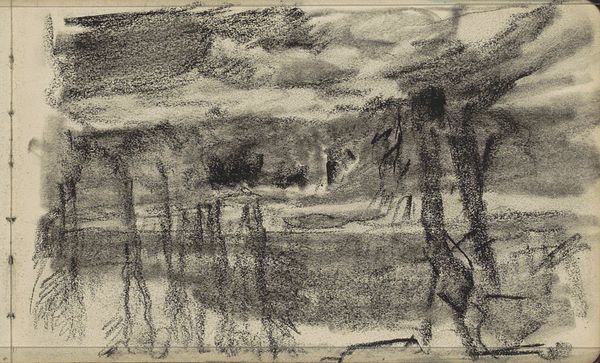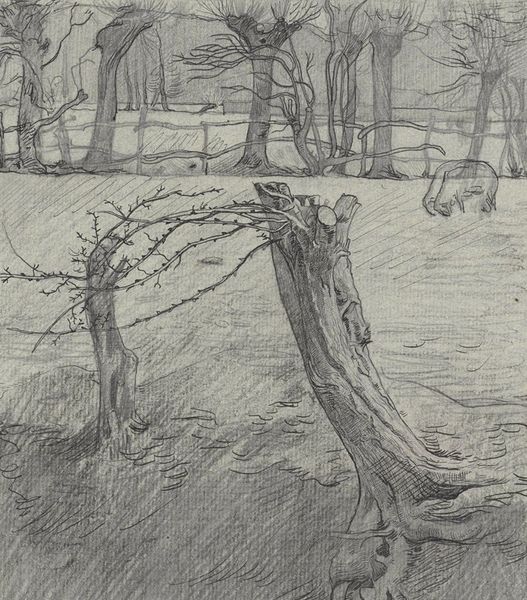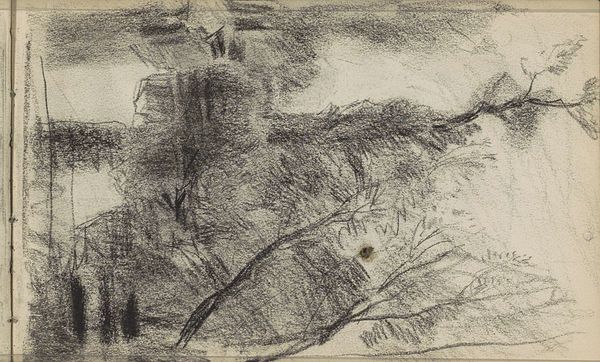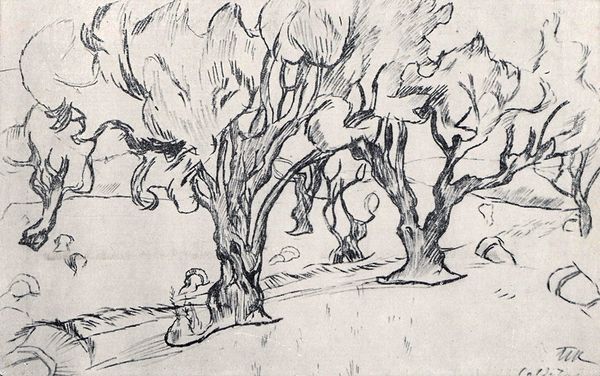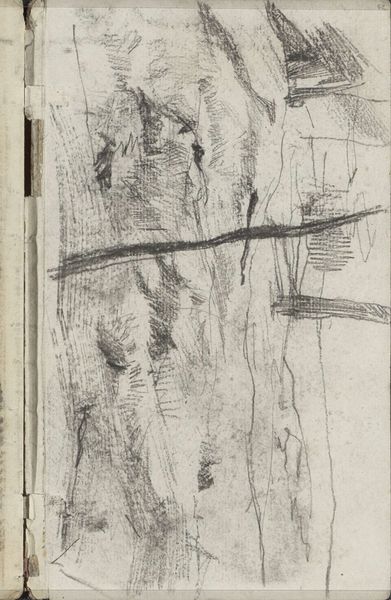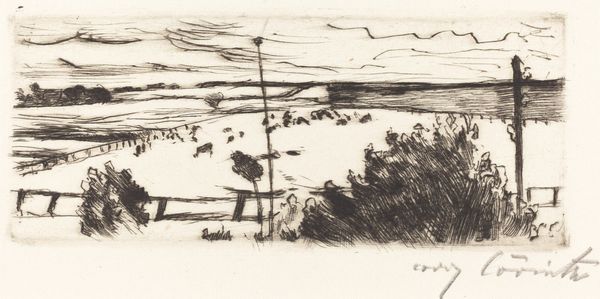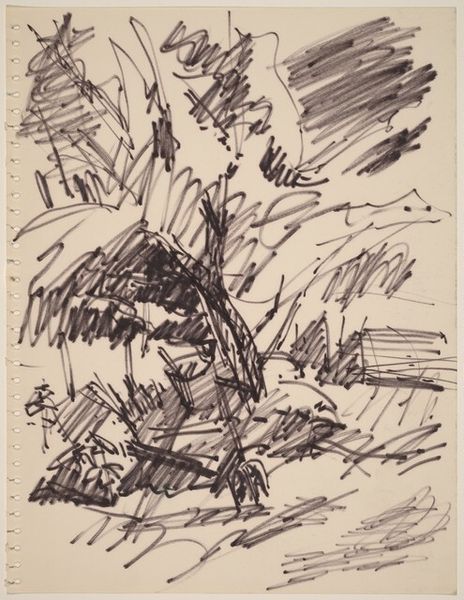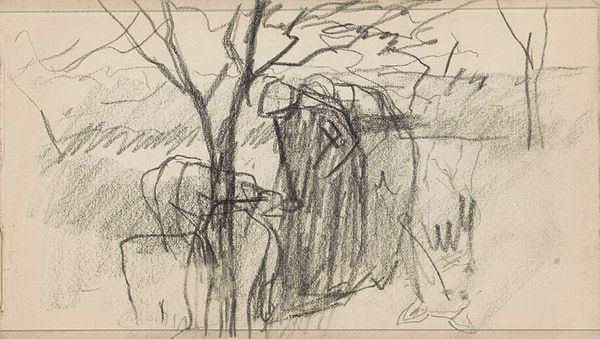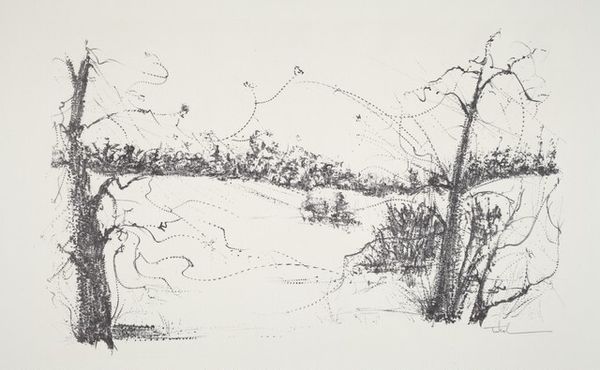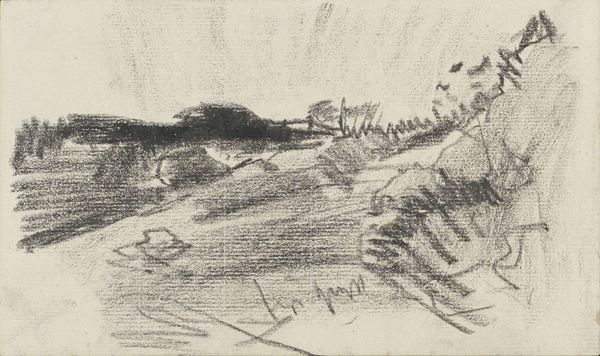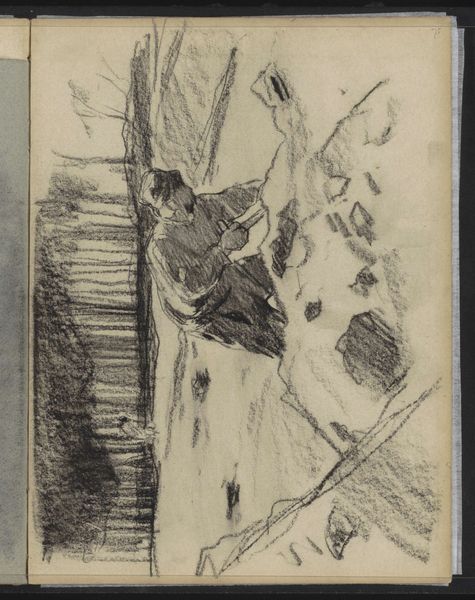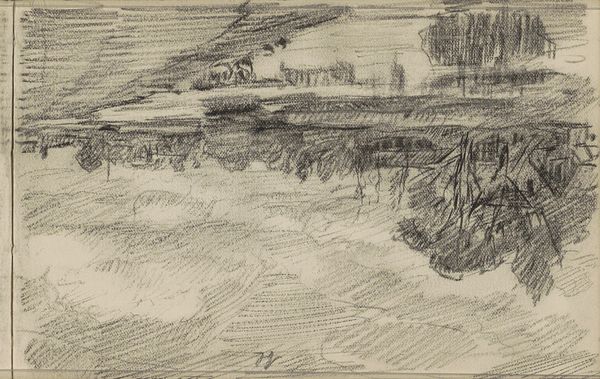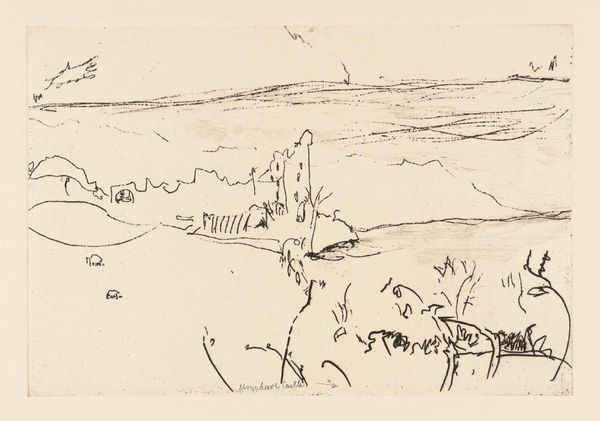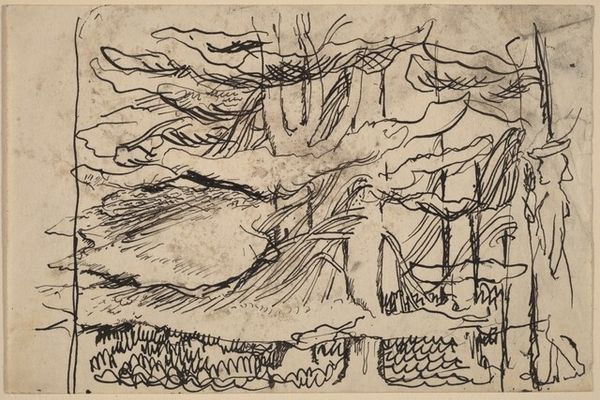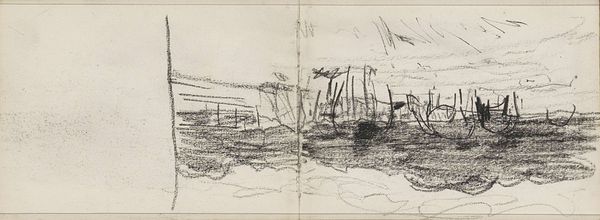
Copyright: Public Domain: Artvee
Curator: Henri de Toulouse-Lautrec sketched this work, "Un Cimetiere en Galicie," a cemetery in Galicia, in 1898, using pencil. Editor: Bleak. Absolutely bleak. You see those stark trees against a faded sky? Gives me chills. Curator: Galicia, now divided between Poland and Ukraine, bore witness to relentless territorial disputes in the late 19th century, conflicts often rooted in imperialistic drives by the Russian Empire and Austria-Hungary. Editor: The historical context explains that feeling of devastation...I see a skull. Is that a skull right there in the foreground? Stark reminder of mortality amidst the land disputes. The whole sketch has this feverish quality. Look at the lines, so frenzied and yet controlled. It’s like capturing a fleeting, awful dream. Curator: It does appear to have a spectral presence. Lautrec often found himself drawn to the edges of society, both literally and figuratively. His portrayals are not simply documentary; they question prevailing assumptions. This image offers a glimpse into the effects of those policies on landscapes and lives. It may have been related to the artist's journey with Arthur Meyer through Galicia. Editor: And even in the starkness, the composition has an uncanny beauty. Those birds taking flight…it's a fragile beauty. The raw quality of the pencil markings just amplifies the sense of despair. A memento mori, really hammering home how fragile life is against this backdrop of political turmoil. Curator: Symbolism, no doubt. This artwork invites us to confront the brutal realities of those conflicts while prompting reflection on their broader implications and legacy. What do you make of its impact on our contemporary view of conflict, considering that Lautrec chose pencil as a medium? Editor: Well, there is something immediately accessible, unvarnished, almost urgent about a pencil sketch, isn’t there? In our time, amidst today’s conflicts and humanitarian crises, it's hard not to see those threads connecting us to the Galician gravescape. It hits hard. Curator: Precisely, and a rather compelling piece of history revealed in very few strokes. Editor: Indeed, bleak but resonant.
Comments
No comments
Be the first to comment and join the conversation on the ultimate creative platform.
